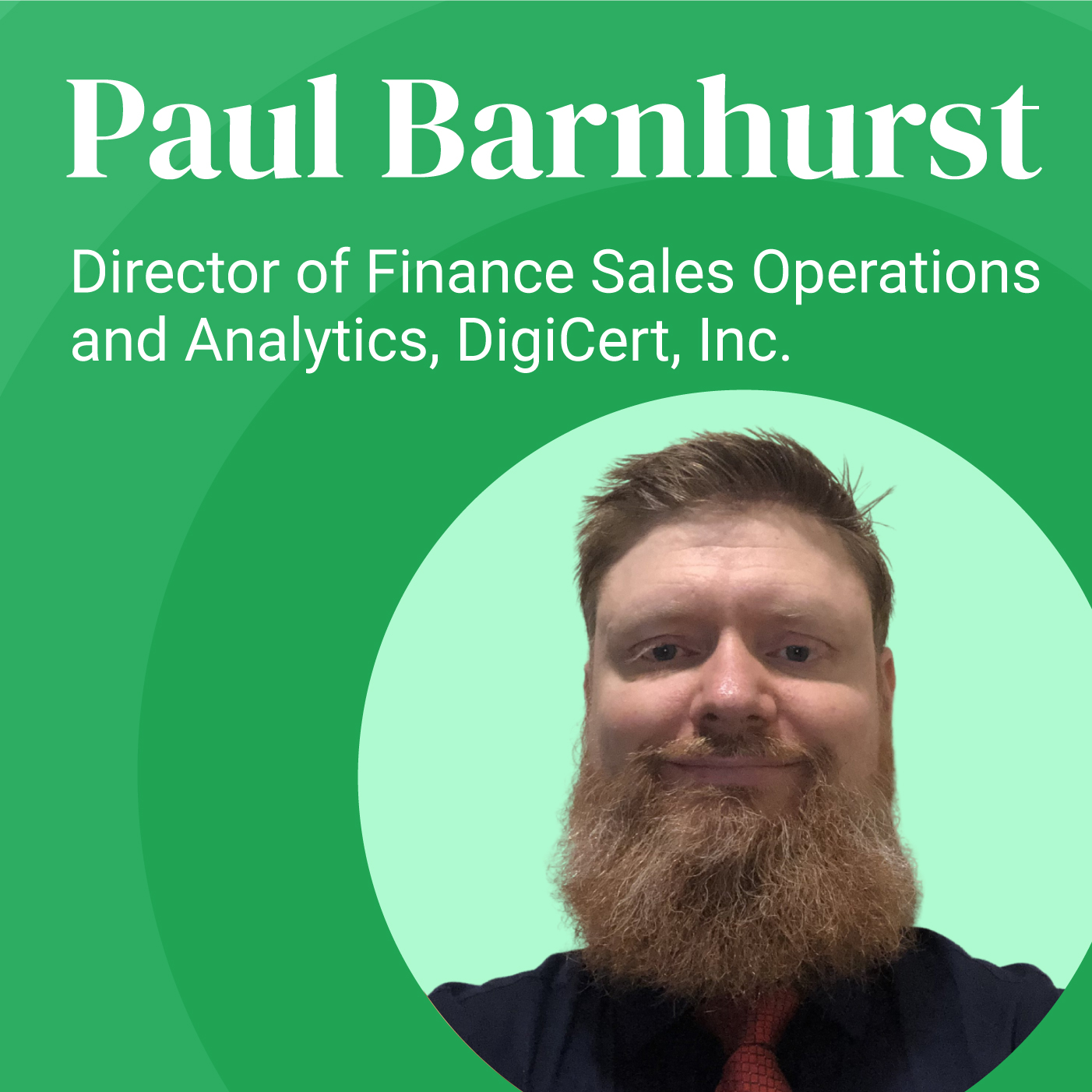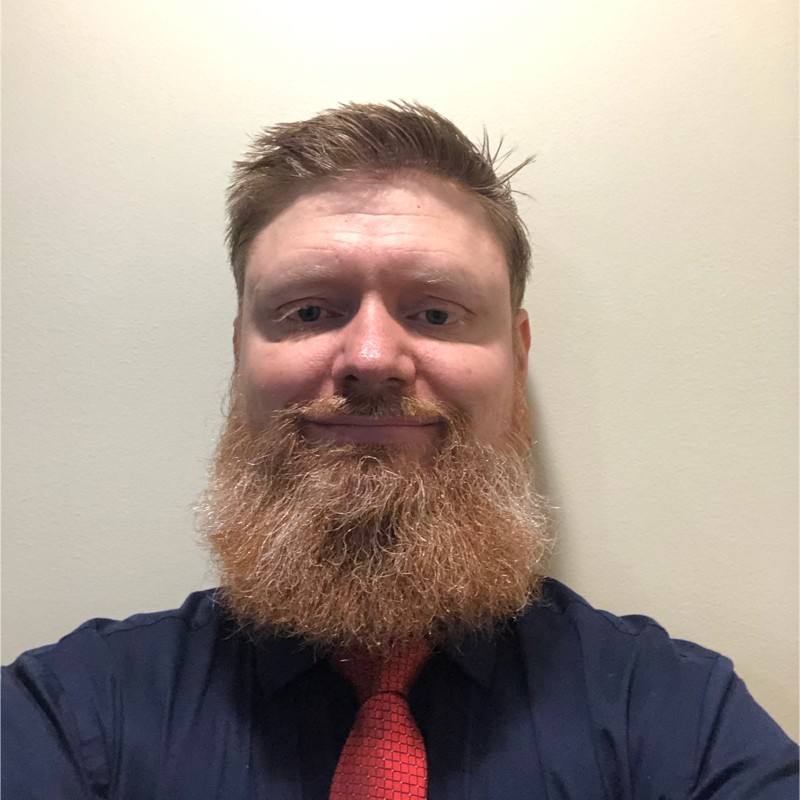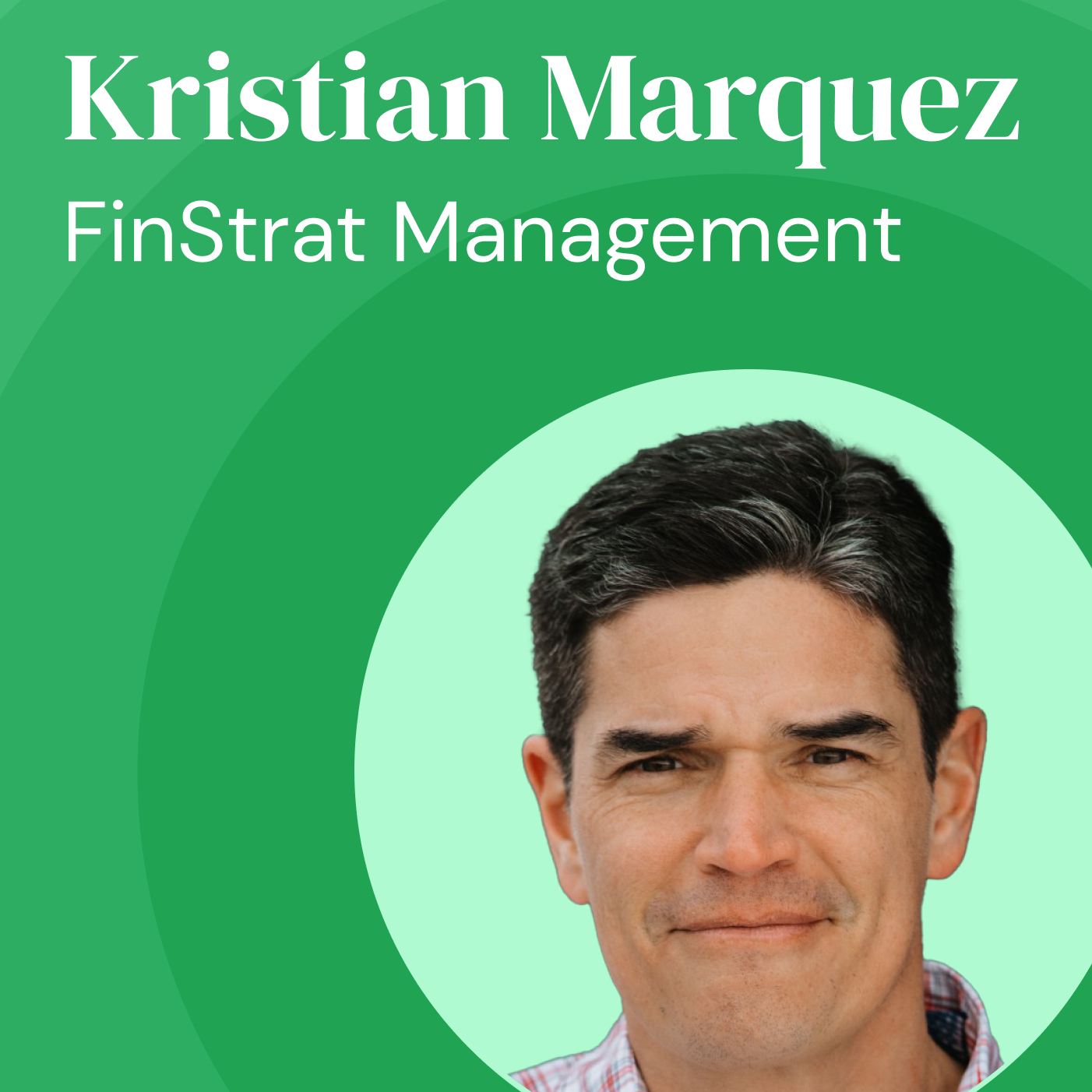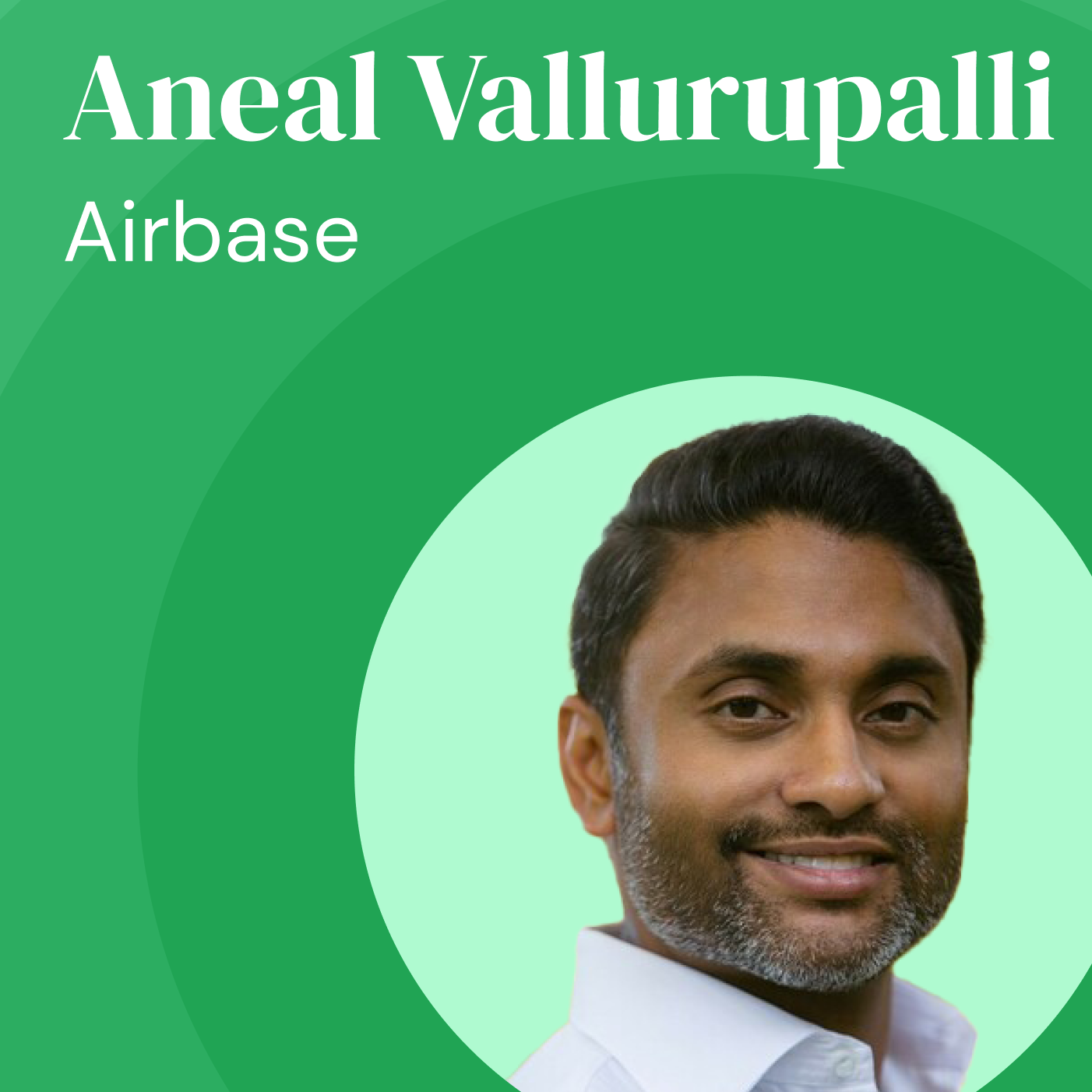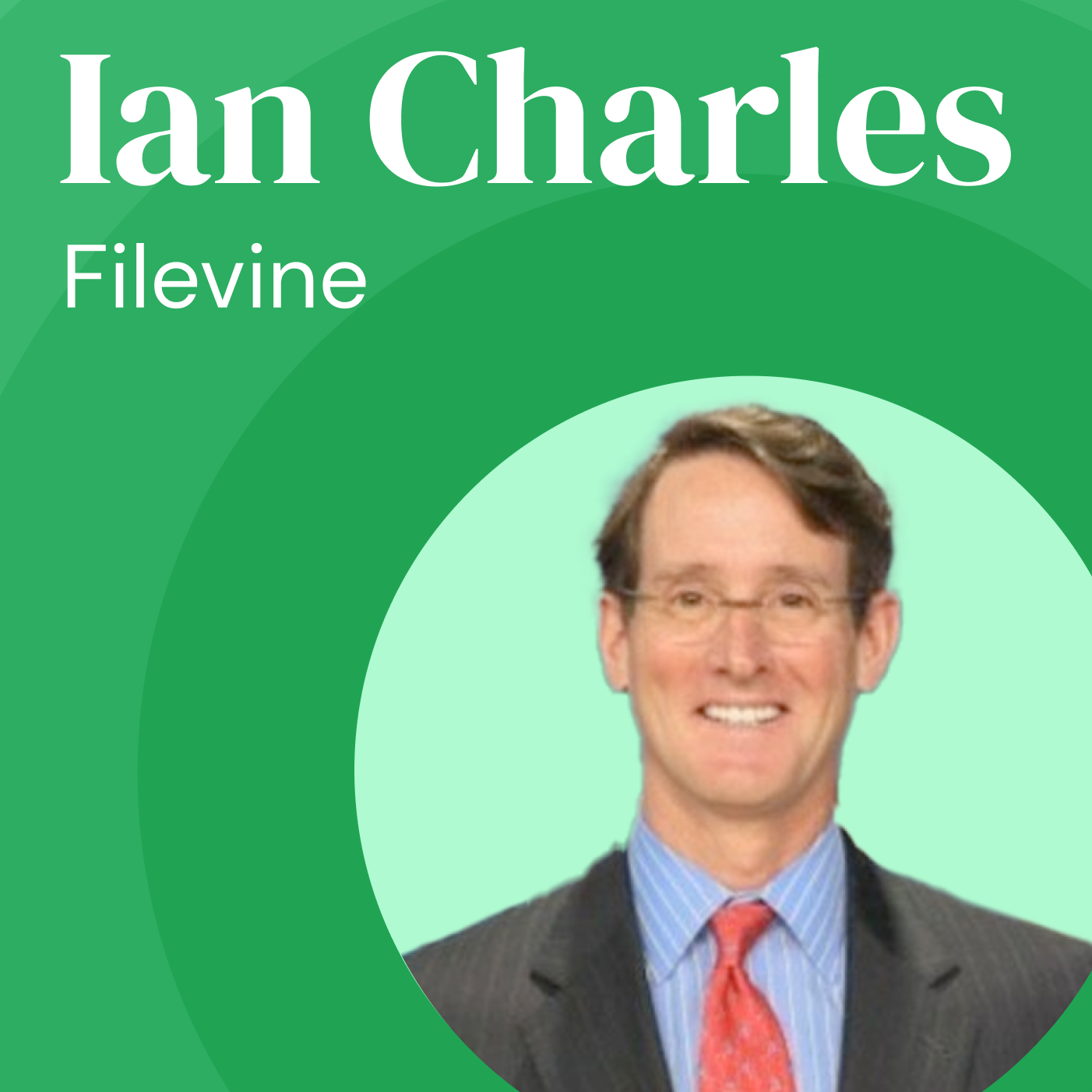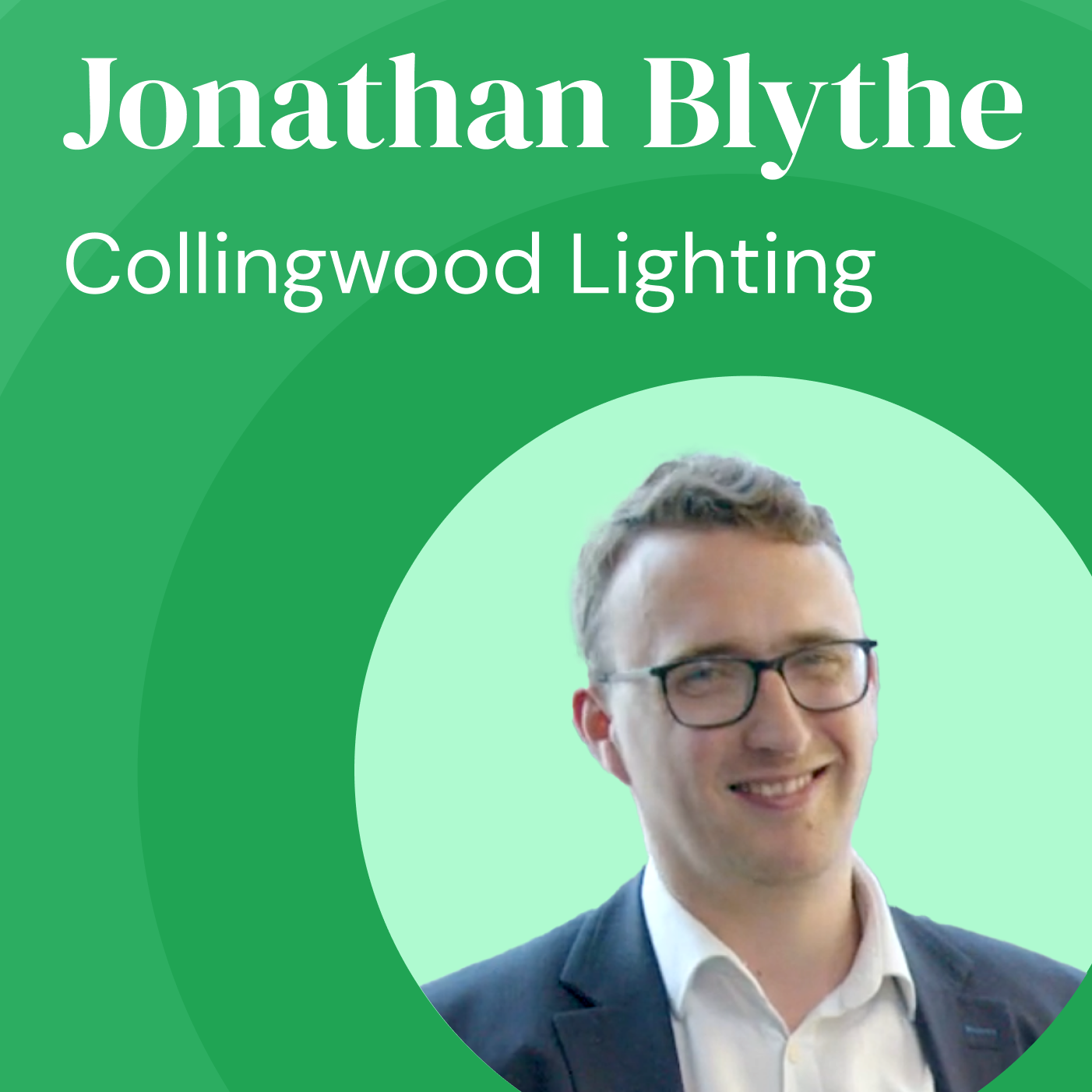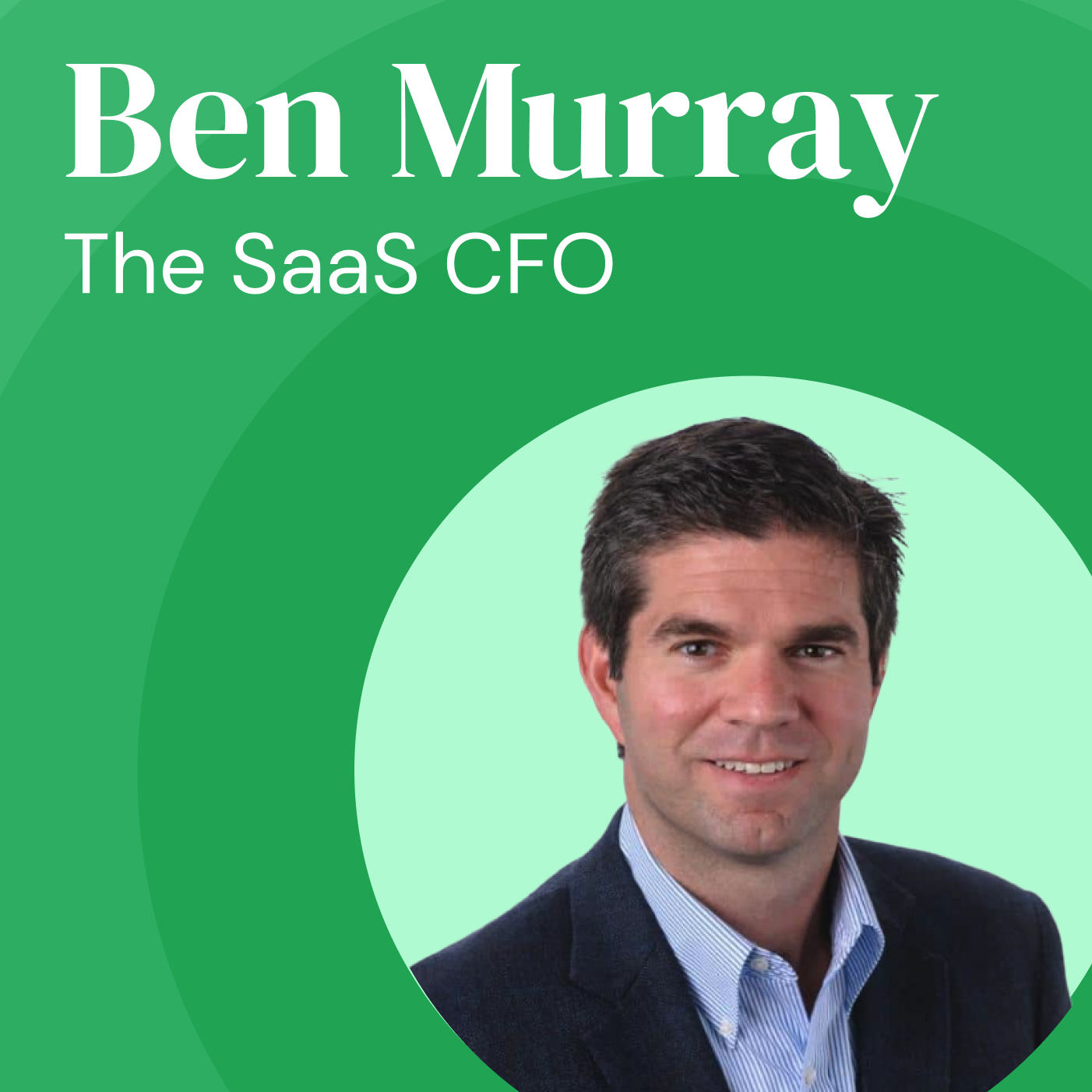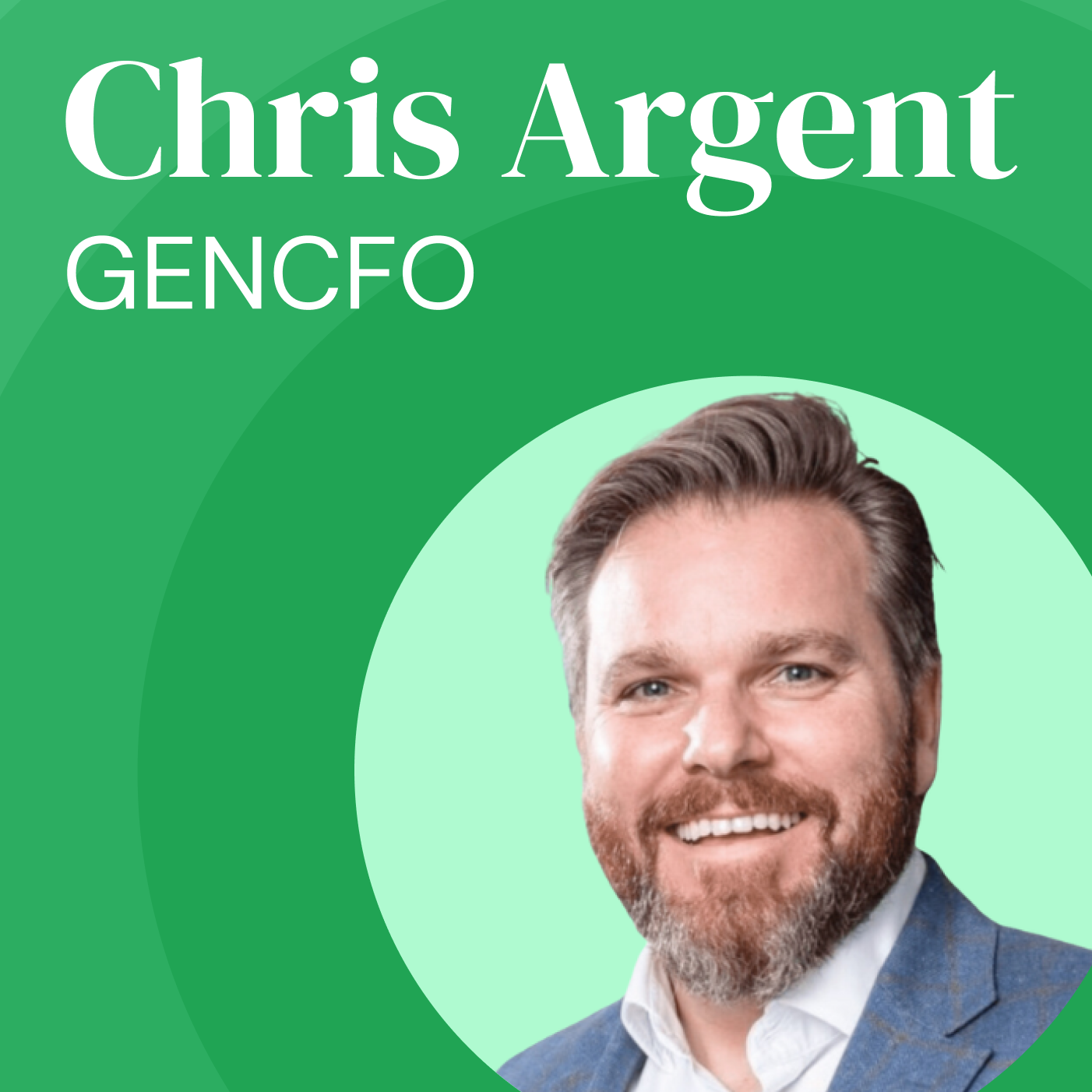Sales Commissions and Planning | Paul Barnhurst
- 0.5
- 1
- 1.25
- 1.5
- 1.75
- 2
- Paul, welcome to Being Planful. It's really nice to have you joining us. For those that don't know, Paul Barnhurst is today's guest and if you're not on LinkedIn, and you're not following Paul, I encourage you to quickly go over to LinkedIn, type in Paul Barnhurst. You're gonna find a lot of people there. He's the director of FP$A at Solera, Inc. And follow Paul. He's got some great daily musings around all things FP&A. Super interesting and Paul, great to have you on the show. I'd love to let you introduce yourself outside of just being the FP&A guy on LinkedIn.
- Thanks Rowan. I appreciate that. And you know, I'm really excited to be here a lot of fun. And, you know, like I said, FP&A guy on LinkedIn, enjoy that little bit, you know, just kind of brief introduction about myself. I've been working in FP&A now for about 12 years. I graduated in 2008 for my MBA. And originally, I thought I wanted to go into investment banking, but I graduated during the financial crisis. That was not the right time to go into investment banking. And so I ended up landing at American Express, started working in the business for about a year did some financial analyst stuff. And that led to an opportunity to work in FP&A and have been there last, you know, 12 years, basically, doing FP&A. Today, I work for a company called Solera. We're a global automotive software business. We operate in 80 countries, I support two of our businesses in the US, our dealer business, and aftermarket. So we probably have about 100,000 different customers we support and you know, provide a business support for all the different areas of the business half a team I work with.
- Right, so 100,000 different customers that's a lot of customers to sift through. So in terms of the teams that you support today, what parts of the business do you support as the finance business partner?
- Yeah, so our team, we have ownership of the full P&L for the business unit, but we don't forecast everything. So it's a matrix organization, the product and development expense side, we have a separate team to forecast that globally, 'cause they've centralized it, we have a couple centers of excellence, and they did the same thing with IT. And then global financial systems and the finance piece. That's forecasted centrally. So I have ownership of the sales, you know, all the revenue, all the account management, the operations, any of the executive team, any of the legal the sits in the business, the marketing pieces. So pretty much all of what we consider most of what's opex and SG&A. We have some call centers I have ownership for that as well.
- So all the fun stuff, all the fun go to market stuff, everything, all the boring stuffs been sent to global, and you're probably pretty happy about that.
- I don't miss not having to forecast IT. I've definitely done my share of IT. I've done some P&D. And I, you know, P&D is good. But yes, I prefer much more than the sales, the marketing, the revenue, partnering on growing the business versus just the expense side of the P&L. It's important, obviously. But if I if I'm picking one, I'm taking the revenue of the sale size. You know, the marketing guys are pretty nice I've heard.
- Yeah, yeah, I'll say that the marketing guys are awesome. I've never met your marketing team. But they're marketers, they've got to be great. So talk to me a little bit, you've been on a bit of a journey there at Solera. You've had some really interesting kind of transformation going on. And that's led to a lot of finance transformation, which when we were preparing for this you were talking about was some really kind of fun stuff that you got to, you know, lead and work within. I'd love you to tell our listeners a little bit more about that.
- Yeah, sure. So it's been a really interesting journey. Solera went private. We were bought by Vista in 2016. I joined about a year later. And when I joined briefly, before I joined, they had switch CFOs. And so the CFO had one vision for the location I was at that it just left, the new CFO had a different idea. So I was hired in with certain expectations that never materialized. So I started out working on actually putting a planning system in place, looked at host analytics looked at, you know, all the different ones out there. Planful now as host analytics at the time, and you know, we made a decision to go with the planning tool. And then corporate said no. So then we said, okay, we'll use the corporate tool. We wrote all the requirements, we got the corporate person involved, selected the vendor, did all the work. And then they said no, we're gonna put it on hold. So we never quite implemented what we had planned. We've done a number of other things. But then my job changed. And so it's kind of my second job I started to support the regional CFO, and then where things kind of got really interesting is the owner was ousted as the CEO. And, you know, Vista came in and overhauled the company 'cause we'd really been operating as a holding company. We done 60 acquisitions, or over the life of the company. So in a 10 year period, I think at the height they did 54 acquisition. So one a quarter.
- Wow.
- You can imagine how and they will operated as holding company. So we had, you know, systems and processes different everywhere throughout the company. And Vista really got heavily involved as private equity does and said, hey, let's streamline this. So over the last 18 months, you know, we've overhauled our inside sales org, we've made changes about 60% of that we're now rolling that all out globally. You know, we standardized a lot of our operations, we are working on standardizing, you know, the way our call centers operate and just doing what you normally see in an operational business. And with that, I've had the opportunity to get heavily involved in sales, done a little bit of sales operations, helping design commission plans, working with their head of sales, you know, some of the go to market stuff working very closely with product and pricing. So beyond just your typical FP&A... Sorry about that. My daughter's asking me for something.
- No worries, this is the life we live. Thankfully, mine are at daycare today. So you won't see them running past which is always helpful.
- Yeah, I know. Thanks about that, for understanding it is the world we live in, right? You see the photo bombs.
- They're called kid bombs or dog bombs now, and I think we're, you know, over a dozen episodes in and I still haven't heard my dog bark on the podcast, which has been absolutely shocking, 'cause he sits just over there. And for some reason, he's never managed to make it. So let's see how we go through this episode.
- Oh, that's pretty good. So yeah, so like I said, you know, worked on commission plans worked a lot on pricing, a lot with product and really very hands on got to really be a business partner, in addition to the traditional forecasting and variance commentary and all the things that go with finance in FP&A.
- Yeah, so let's lean in this. So some of the areas there that you've talked about are interesting topics for me, specifically something like, you know, commission and, you know, getting FP&A into the commission's process and helping understand not only how fiscal impacts but what does that really material drive for the business and, you know, doing all of that kind of commission modeling commission understanding, so talk through some of that in as much detail as you can with obviously, leaving out who's the best performer. And who's gonna who's--
- Yeah, so we, you know, the organization we have hundreds of people all together, but the primary business that I've worked in two different areas, but one of the things we worked on was a lot of account managers. And, you know, historically, there have been a lot of different approaches over time to the different teams. As we were trying to standardize it. You know, when I took the job, I had never calculated commissions. Yeah, I've worked with account executives, but it never been involved in it. And then I'm getting asked to help put the new plans in place and worked with the salesperson and putting out ideas. And, you know, I learned a ton of just the importance of understanding incentives, how salespeople work, that it's so much more than just a finance exercise. Like the there are some people that just look at sales plan and say, okay, it's just hygiene, what's the right rate to pay, let's minimize our risk and put in some kind of cap, let's, you know, do quota ratcheting, or whatever, and be done with it. And you'll really work with a salesperson has really helped me see and talking to all these different people that it's really the blueprint for the salesperson, right? You give them a plan, and they look at it and go, okay, I needed to do this, if I wanna earn this, and you gotta make sure is that what I want? You know, the results of what that will be to the business, right? Have I really thought through this right and am I incentivizing them, right, with accelerators and things like that. So it was just a, you know, great opportunity, and getting to see different people's thinking, 'cause first I worked with one group, then we reorganize our inside sales. And I just moved into a new role where I take it on additional responsibility. So we brought in a new VP, and he's kind of rolling out a similar approach globally. And so I got to work with him and see his whole thinking on sales plans, which was different than the prior person I'd worked with, 'cause we improved on, you know, negotiating things like clawbacks.
- Yeah.
- Right. 'Cause from a finance perspective, we're always like, hey, we need to get back the cost of acquisition. And they're like, well, no, but it's not the sales guys fault and trying to find that, you know, happy medium of what makes sense of protecting the financial interest. But making sure you're incentivizing the sales guy and not, you know, penalizing him inappropriately.
- Yeah, it's a really interesting challenge, especially when you start layering in quota, right. And you know, the the hurdles and the rewards that you can put in place really change the way that not only that sales organization will behave, but also how they'll request things from all the departments, right. And so, you know, for all of those listening commission calculation is a mathematical exercise, but compensation plan design and quota plan design, and, you know, creating those different commission plans and the different structures. That's an art and a science balanced into one like actually calculating on the back end. That's pure math. But the actual art and science is really, really powerful and can actually, you know, look at Wells Fargo, it can have a material impact on a business, right?
- You know, and I saw some of those situations where, you know, you're always gonna get something wrong in a commission plans, they're always gonna try to find a way to game it. There's no perfect commission plan, right? We all know that. You know, and I saw some things where we got some things wrong. And, you know, kind of quickly alerted the business that this doesn't make sense. You know, this is out of line, we're rewarding the behavior we didn't want, it's not, you know, putting the right metrics around it. And as you know, you know, kind of both places, just we're trying to find that right balance, 'cause I agree with you. There's a lot of art and science to it. That has nothing to do with the math side.
- Yeah, and so talk about, you know, again, talk about how you go, you find a change, right, so you find a behavior that it you've unwittingly either incentivized or disincentivize through a commission plan. How do you go about changing that and talk about the kind of change management and the business partnering that we all wanna do, to actually, course correct that?
- Yeah, so when I see something that I think, okay, you know, this situation, because we rolled out a new product, and we didn't think through it, and maybe the margins are totally different. So the payout doesn't make sense, right? You know, some situations like that, I'll always bring it up to our, you know, head of sales or general manager saying, look, I was looking at this, here's what we paid last month. Seems like we're you know, it doesn't make sense here. So how do you guys, you know, how should we approach this? I think we need to make some changes, when do we look at it? You know, how do you wanna handle it, and then I'll work on whatever we need to do on my end, but I always get their input. Like, they'll ask me to model different things. And we'll get together. And we'll talk through it and see what we think makes sense. And, you know, ultimately, at the end of the day, the business owns it. And as long as I'm okay, from an expense side, you know, I'll sign off with what they want, even though sometimes I'll express why I have some concerns. I think that may not, you know, do what we want or this may be great, but we come together and work through it and make the decision that we think is best for the business. And I look at me is what someone to provide my opinion and to look at things but oh, absolutely being finance, the end of the day, if they say hey, this is what we wanna do. I'll say yes, from an expense standpoint, if that makes sense, here may be my concerns, or here's why I think it would be good. But ultimately that, you know, kind of final decision to the business.
- Yeah, you have to put in place the rigidity of the, you know, the conservatism and the fiscal needs of the business, of course, right. But the partnering side that you talk about is the okay, well within those constraints that we have, and the expectations of us being fiscally responsible. Here's where the edges of this are.
- Yeah, and you know, one of the big things we do is a lot of people's looking at on target earnings, right? You have a base salary, you have a variable and say whatever that ratio is, you know, you see all kinds of 160 40 50 50, whatever it might be looking at that and saying, okay, so they have these different areas, they can sell their account managers, how much should be toward retention? How much should be toward here? And what, you know, what is a good performer? What does that look like? So what should be the rates on the different components? Yeah, like a sales guy will, the salesperson will say, well, here's kind of my general idea. Here's what I'm thinking overall, what some of the numbers are, we'll go back and model it and come back to him and say, this looks a little low, or have we thought about trying this and kind of, you know, kept modeling it and then took it to to the CFO and getting everybody's approval to say, yep, those make sense. Let's put them in place. And you know, as soon as soon as we put them in place. Of course, they brought up a few things like okay, we want you to make a few tweaks. Didn't think about that.
- Yeah, and so how many commission different types of plans would you have in place?
- So, you know, we're standardizing it a lot more now. They just brought in a compensation specialist, so I won't be as heavily involved in it, which has been good full time.
- Yeah, and they're trying to standardize it more, which I think is the right thing to do. It's not my specialty. The learning has been fabulous. And I still want to, you know, be involved from a finance standpoint and continue that learning but we have... I mean, it depends on how you look at it. Well, within our account magic group, you know, we have a slightly different one for this group of key accounts and a different one for this independent group of key accounts, then we have one for field sales and something for inside sales, you may have a couple different levels like, right, you're AE1 and you're AE2, and may be focusing on higher mid market type clients versus entry level type clients. So, you know, across the company, when I came in, they were probably over, because so many, all those different holding companies, I bet we had over 100 different types of plans out there.
- Yeah, yeah.
- If not more, and then we've ratcheted that down, and now we're trying to, you know, consolidate even more, cause it gets a little unwieldy, to manage that many.
- And that's where I was kind of leading, I suspected, you know, doing 54 acquisitions, almost one a month for over a period of time, you're going to end up with a very bloated, you know, complicated commission structure for the organization. And for the listeners out there, you know, there is this ambition in future in the compensation world to have individual compensation, right, you know, they talk about it in the sales performance management world where a rep can design their own plan, but what they're talking about is some of the variables within the plan, really, you should have, you know, one, maybe two plans per role if that. So, when you think about the roles within your organization, you don't really wanna have, you know, the optionality where one roll could have eight different plans, because you're just getting yourself into a lot of mess, you're making it overly complicated for the finance team to calculate all that, the sales team to measure and control performance and predict performance in many ways. You also may hear really difficult for the reps themselves, because they're confused, and they actually can't talk about any of their plan structure with their peers.
- Yeah, I've been, you know, doing some research and some reading and seeing as some of the stuff out there. So as I started doing this, I have an experience, you know, I've come to be a fan of, you know, a simple plan, with maybe some base accelerators, possibly some motivation in there beyond pay, whether however you do that you're doing through sponsor and a plan, but I think, you know, keeping caps away from it, allowing people to earn for what they sell and rewarding them for the better they do. I mean, it, you know, and I've seen a little bit of everything, but that's kind of what I've read seems to, you know, generally be a little more effective.
- Yeah 100%. And so let's talk about another, you know, business area that we always need to partner with, when we're talking about sales commission plans. Let's talk about the HR organization. How involved have they been in kind of some of that restructuring? And how involved the do you want to slash need them to be when you're doing this sort of exercise?
- Yeah, no, they're definitely involved, right, as you're sourcing people, they're the ones that have to share those plans. And they're getting more involved. The compensation person we hired now sits in HR. And so you know, they've, we completely reorganize, you know, HR is part of this transformation that we're making and brought in some new people. And we're, you know, definitely seeing the benefits of that as we move forward and streamline the approach. And in all of HR, how they support people, what groups they support, you know, how they help us with commission plans. And so there, we also stood up a whole sales operations team, where we had little pockets here and there in different businesses and said, no, let's centralize that. And so there's taking ownership, a lot of these commission plans, they took off ownership of all the inside sales, they're gonna start taking ownership of a lot of the ones I did with the compensation person. So that, you know, that'd be good. And then from a finance standpoint, we'll review the calculations and make sure the right, you know, we'll review the plan and say yes, from an expense standpoint and a budgeting, you know, we're good with this.
- Yeah. Yeah, and lots of other kind of very important topics to keep in mind is the revenue record recognition impact. The finance obviously has to be either leading or very heavily a part of with things like ASC 606. And so, as you think about, you know, when we started this call, you we're like, I've never done commission plans, and now I'm rolling. Probably dozens and dozens of plans. What would be the one thing that you learned that you would want listeners to take away from this particular conversation, Paul?
- Yeah, I mean, I think the biggest thing I've learned is just how important a commission plan is like here businesses talk about it as hygiene. It's a blueprint for the sales guy. It's his game plan, right? You think of a football team, they have a very mapped out game plan that they're supposed to execute. Yes, they have some variations and throughout the game, and they improvise, but it's similar for a sales guy. And if you don't get it right, you're gonna have less revenue, and you're gonna lose sales people. And that's the biggest thing that I've learned.
- And then, you know, the cost of then replacing or kind of replenishing that sales person and the lost revenue and the lost motivation for periods of time is extortionate. And it's something that businesses often don't realize or understand. But when you're looking at trying to replace and ramp, a new sales rep, that's often a very long ramping time. And your ability to sell during that period is much very much diminished. So, you know, whenever we're looking at that sort of insight, and that sort of value, we're looking at, you know, ramped direct equivalence. That's because it's really important to understand how many people are actually ramped and able to sell within your organization at a full capacity. So whenever you're looking at your commission plan, and things like that, look at it from how many, you know, ramped rep equivalence there are out there as well, because that is a huge challenge for organizations, especially in what is now a very competitive market.
- Yeah, no, definitely right now, the market's hot and especially, you know, when you're dealing with software as a service. Everybody wants into that game nowadays.
- And everything is a service, right? And so yeah, what has changed in kind of not only just the, you know, obviously, the transformation pull from, you know, being going private with this star, a lot of the transformation that you talked about, but from a outside input point of view, what's changed in the trends within commission plans that maybe a couple of years ago, you weren't thinking about. You're thinking, oh well, okay, the clawbacks, for example. Are you seeing trends or changes in the market that you weren't expecting?
- You know, I haven't looked much externally in the market to see how they're treating them. I mean, we, you know, we've seen some different changes, we've seen it done different ways, and obviously having all the different holding companies. And I mean, I think, you know, at the end of the day, it's always one of those that I find, you're gonna get sales guys that never want clawbacks, it's like, well, I sold it, and then someone else implemented it. And then you always have financing, but there's a real cost here, and we didn't collect revenue.
- Yeah.
- And, you know, finding that balance. You know, everybody I talked to has a different opinion there. And, you know, I've seen different approaches, hey, do you take back, you know, a full amount within a certain number of days? Do you prorate it? Do you count it against the current month? Do you take the, you know, the exact amount back? You know, do you do at net? Do you do a gross? And I don't know that I've came to a conclusion of which ways right. I think as long as it's clear, it's fair, it's articulated, and it's understood, and the overall plan allows them to earn a fair amount for what they're doing. And everyone's gonna have a different opinion there, right? You're never gonna make everybody happy. I think, you know, for me, it seems like, you're okay, as long as you can articulate it. And it makes sense in your treat. They feel like they're being treated fairly, even though they may not like it, you should be fine.
- Yeah, I think, you know, maybe this isn't the best analogy, but it's like marketing, right? The sales people will always have opinion of the sales plan and of the marketing and the organization. But as long as it's fair, as long as it's being well distributed, as long as people are getting what they need, then, you know, everyone generally is happy.
- Yeah, you know, and just like January, you always have, when you're calculating it, you have the conflicts, that's just part of sales. Well, but I worked on this deal, but your name's not on the deal. And, you know, you just work through those with the business and business kind of makes those final decisions and move forward.
- And so, talk to me a little bit about how you got kind of that seat at the table in terms of with the sales organization, right, because when you're talking about restructuring commission plans and going through that transformation, you mentioned experiences with the VPs of sales. How do you earn their trust? Like what would the the kind of big factors for you, you know, leading to you be able to implement some of that?
- Yeah, so I think you know, two things within the company. There's always been a seat at the table for finance. So I had it from the start, but I think where I really earned, it is I came in and really partnered so and one of our businesses, we didn't have a clear understanding a lot of things because of just some challenges with data that we all deal with. And there were some stuff some people the business, you know, had been asking for for a long time. And I came in and given visibility that they'd never been able to get from finance. And that was with product, you know, the sales team I came in, and we really build out a really good model and make sure I aligned with them on all the numbers we're using in our revenue model, and that it could be used kind of operationally and that we were integrated. And, you know, came in and streamlined the commission process, 'cause there were a lot of manual things that were going on, came in and streamline that. And so I think doing those things, and seeing that I was really there to make a difference and be a partner, not just say no, which is often the view of finance really helped me draw a good relationship. And then I was really fortunate in that our CFO that I worked with, became the general manager for our business, he wanted to go back into operations. So I had worked with him as he was the CFO for the US for a couple years for North America. And then he became the general manager. So I already had a great relationship with him. And he trusted me. And so that only further, you know, the ability to really be involved and to work closely with the business. So I've been really fortunate in the way the company runs, and then just being able to come in and you know, roll up my sleeves and make a difference and earn that trust.
- Yeah, yeah, I've spoken with many guests about this, but it's, you've got to earn the trust first. And I know you speak about that, as the FP&A guy on LinkedIn, you know, you do talk about to be able to really, truly become the business partner. You can't be perceived as the traditional finance, right? You've gotta be the business partner, you've gotta earn the trust. And I think I'll keep saying on this podcast for a long, long time with all of our guests like, that's how you can really manifest and implement the change that the business needs finance to lead.
- Yeah, totally agree with you.
- So Paul, this has been really fun. I know, you have to now kind of scoot off for your evening responsibilities. And it's been a fantastic conversation. I know, we've probably got 100 other topics that we could have covered today. But commission has been certainly one that I know many finance leaders kind of have either had a lot of experience in or none at all, there's sometimes often no real middle ground. So this has been--
- I would agree.
- Really enlightening I'm sure for many of our listeners and you know, I've said it before on previous podcasts. If you wanna find out how your business works, go and look at your marketing attribution model and your sales commission plans and you always find a way to partner with you go to market teams pretty quickly.
- Yeah, I know that makes sense.
- All right. Well, thanks so much for joining us today, Paul. And hopefully we'll have you on again another time.
- Well, thank you, Rowan. I really enjoyed it and you enjoy your evening and thanks again for having me on.
- No problem. Thanks Paul.
DESCRIPTION
On this episode of Being Planful, Rowan is joined by Paul Barnhurst, Director of Finance Sales Operations and Analytics, DigiCert, Inc., (formerly FP&A Director at Solera Inc.), for a conversation about finance and sales commissions. Tune in to hear Paul's experience with finance transformation, commission modeling, and partnering with sales and to create and course correct commissions plans.

